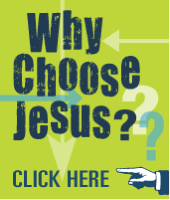|
212 entries for this category: | Is the Story of Jesus` Crucifixion Anti-Semitic? |
" -- Over the centuries there has been a lot of passion unleashed in the church a lot of anti-Semitism unleashed in the church when the Crucifixion is blamed on Jewish folks. The deeper issue that I want to get to here is not found in the movie itself; it is in the actual New Testament. Is the story of Jesus` death anti-Semitic at its core? The main thing I want to say here is that one of the aspects of Jesus that for a lot of reasons the church tended to forget historically and one that is being rediscovered in New Testament scholarship in our day is that Jesus is thoroughly, thoroughly Jewish. -- Roger Wilson is a NT scholar at Gordon Conwell Theological Seminary. He writes about seeing a piece from a Sunday school lesson published by a major denominational publishing house. Thousands of kids would have seen this when they went to Sunday school. It`s a picture of Jesus as a little boy, going into a building, and here`s what the caption beneath the picture says: "Jesus was a good Christian boy who went to church every Sunday." Does anybody detect anything wrong in that caption? It`s exactly correct except that He wasn`t a "good Christian boy"; He was a good Jewish boy. And He didn`t go to church; He went to synagogue. And he didn`t go on Sunday; He observed the Sabbath. Other than that, that whole sentence is all OK. -- What is very important to understand about Jesus is that when He grew up, He became a Jewish rabbi. And he revered the Jewish Scriptures. A contemporary scholar by the name of Ray VanderLaan has done a lot of research in this area, and he notes that in Jesus` day it was the custom that if you were going to become a rabbi, you would have memorized the entire Torah the first five books of the Old Testament. If you have ever read about Jesus, one of the things that will strike you is His commanding knowledge of the Old Testament. Ray says that there were certain rabbis a very, very small number of them known as "rabbis with authority" who had memorized the entire Old Testament. And again, if you know the New Testament, there are a number of times when people talk about Jesus as being a "rabbi with authority." -- It seems a funny thing to me that sometimes in our day, people will talk as if there`s a gap between the God who is presented in the Old Testament and then the loving God who is presented in the New Testament. Do you know who did not believe there was a gap? Jesus. That`s where He read of the Father that He loved so much. You don`t understand Jesus unless you understand that He was a thoroughly Jewish boy who grew up to be a Jewish rabbi. And when did Jesus ever say, "Now it`s time to repudiate my faith? Now it`s time to repudiate the Hebrew Scriptures?" He never does. In fact, He says quite deliberately, "Don`t think I`ve come to abolish the Law and the Prophets. I`ve not come to abolish them, but to fulfill them. I want the Old Testament to be understood as God initially intended them to be understood. I want to fulfill them in my life, and I want to make that fulfillment available to everybody." -- So this is real important for us to understand as a church: Jesus` disagreements with other Jewish leaders were disagreements that were, in a sense, within the family. You know how I can say something about someone in my family, because I`m an insider. But if you say something about somebody inside my family, that`s kind of a different deal? Well, Jesus and the other writers of the New Testament His followers were Jewish. There were a lot
of disagreements in that day, just as there always are among people of different schools of Judaism. But when Jesus spoke, He was somebody who was inside the family and who loved the family. I think one of the saddest things that happened to the church over the centuries was the suspicion and hostility and mistrust and, in certain cases, hatred that arose. During the Crusades ''the first Crusade'', on their way to the Holy Land, Christian soldiers slaughtered 10, 000 Jewish people. Down through the years, one of the saddest parts of the history of the church has been anti-Semitism. For the church in general, certainly for us as a community, part of what we want to say is that we want to be a community where everybody is honored and loved and revered and welcomed. This ought to be especially true in our relationships with the people who are part of the people from whom the One we follow came! "  By: John Ortberg By: John Ortberg
Category: Jesus` Last Words, Final Hours on Cross and Jesus` Death
(2) Comments |
 |
Comment |
Helpful? |
Favorite |
Violation |
 |
|

 | Why Did Jesus Have to Die? |
" I want to start by reading from a letter written by the Apostle Paul a long time ago. Paul writes: For what I received I passed on to you as of first importance that Christ died for our sins according to the Scriptures, that he was buried, that he was raised on the third day according to the Scriptures, and that he appeared to Peter and to the twelve. After that he appeared to more than 500 of the brothers and the sisters at the same time most of whom are still living although some have fallen asleep. Then he appeared to James and then to all the apostles and last of all he appeared to me also. -- It seems amazing to me that the cover story of Time Magazine this week has a single question on it. Some of you have seen this. "Why Did Jesus Have to Die?" Inside, there is a long article debating that question. For Paul, there`s one answer: He died for our sins. He died because our world has been messed up, and because our choices have played a role in that. For me, the irony is that there are other two headlines on the cover of that same issue of Time Magazine. One of them is "Horror in Falujah." It`s about hostility and hatred and a brutal murder the dark stuff in human hearts that the strongest army in the world cannot erase. And the other headline is, "Confessions of a Tyco Juror." It`s about greed and corruption at high levels that the most sophisticated judicial system in the whole world cannot get out of the human heart. Why did Jesus have to die? The answer is on the cover of Time Magazine for our sins. -- The history of the human race is people saying, "I think I can bridge that gap. If I do enough good deeds, maybe if I give enough money, maybe if I go to church often enough, maybe if I learn enough religious information, maybe if I`m involved in enough charitable activities I think I can bridge that gap. And nobody ever has. Not in the history of the human race. Not the best person who has ever lived. Nobody ever has. How would you ever know what is enough? -- And so this is foundational to Christianity, whatever you think about it. The writers of Scripture say: God himself, Jesus Christ, came to earth, lived as you and I, and went to a cross, and on that cross he died the death that we should have died. "The result of sin, " the writers of Scripture say, "is death". It brings physical death. That wasn`t what we were made for. It brings spiritual death and relational death, and all of that is what Jesus was taking on himself. That`s why he had to die for our sins. To make a way between where we are and where God is so that anybody who wants to can now be in an intimate relationship with God, can know that things are OK with God, can be assured of being with God forever one day. But it`s not because of the "I Want to Bridge the Gap Myself " plan. It`s because of what God has already done, and can be received it as a gift. We can accept it as grace. That`s what grace is about. This is the first foundational truth of Christianity. Christ died for our sins according to the Scriptures. It was God`s plan. -- And then, Paul says, there`s a second foundational truth: Jesus didn`t just die; on the third day, he was raised again. On the third day, everything changed! Where everybody thought they were just going to see death, there was life! And that shook things up! After the third day, as a matter of
historical record, his followers, who were shattered and disillusioned and heartsick following the Crucifixion, went out to face all kinds of difficulties and suffering and imprisonment and spread the word, because they believed they had seen life where they were expecting death. That shakes people up! -- Foundational to the core of Christianity, whatever you think about it, Paul says: On the third day, Jesus woke up, opened his eyes, came out of the tomb and said, "Peter. I am alive." He told his disciples, "I`m alive." He saw hundreds of his followers and told them, "I`m alive." And people started running and telling the news. And they haven`t stopped yet. And that`s why this is a day of joy . . . because death doesn`t get the last word. That`s why Christianity is not just a set of values. It`s not an abstract religion. It is the offer of a relationship with a real person . . . with a resurrected Messiah. -- For a lot of people in our society, if you were to ask them and they were to be honest about it, what they would say is, "I`m not real sure that the Resurrection actually happened. I understand that it`s part of our culture. I understand that Easter is observed. I`ll even observe it. I`ll listen to the music. But I think that if I were going to be honest about it, I`d say maybe it`s kind of a metaphorical way of speaking about hope. Maybe it`s kind of a symbol that spiritual writers use. I`ve never taken it real seriously as something that actually happened-as history. Maybe I`ve never really examined this for myself." -- Now, if that`s the place where you find yourself this morning, then the next step in your spiritual journey might be to start investigating. We have a book written by Lee Strobel that`s available to everybody free of charge. It`s called The Case for Easter. If you find yourself skeptical about this whole subject, Lee Strobel is your kind of guy. Lee is a Yale-educated former investigative journalist who worked for the Chicago Tribune for many years. He was a devout atheist, who was quite certain that all Christians were fuzzy-minded, softhearted people, and he had very little time for that touchy-feely stuff. -- As a skeptic, one of the biggest problems that Lee faced was this: If Jesus really did come and spend three years with his disciples, and when he was crucified those disciples all ran away and hid, how were they transformed into martyrs by the rotting carcass of a deluded madman if Jesus stayed dead? How did that happen? How is it that the disciples were all of a sudden willing to face imprisonment and suffering and death as they were as a matter of historical record for what they knew to be a lie? Nobody goes to the gas chamber for a metaphor. And twenty-one months later, Lee Strobel ended up with a very full legal pad, on a bended knee, before a bloodstained cross and an empty tomb. -- Third category, some people may say, "I believe that Jesus died on a cross and was resurrected. I`d stake my life on that. I`ve committed myself to be his follower." Maybe what God is inviting you to do today is to say to Him, "God, I want the power of the Resurrection to be released in some area of my life. I want to be alive in the way that Jesus was alive." -- We`re moved by power. For example, last week we took friends from out of town to Muir Woods to look at the redwood trees. What kind of power is required in the creation of one of those trees? There were a lot of people there, and it was kind of quiet, because there`s a sense of power. Or a much more
mundane example: You wouldn`t watch this, but you might have seen it for a moment when you were flipping around with your remote. Have you ever seen something called "The World`s Strongest Man Competition?" These guys do all kinds of incredible things. There are three- or four-hundred pound men trying to demonstrate that they are the world`s strongest man. I was in one of those contests one time and it`s a very rigorous competition! Or think about the awe that falls when people see a home run hit by the world`s greatest baseball player . . . Sammy Sosa. But the world has never seen power like it saw in this man Jesus. People would flock to him, because they saw him heal with a touch. They saw blind people who could see again, lame people who could walk again and lepers who were cleansed. They saw him defy authority, and they had never seen raw power like this. And when he stretched out his arms and hung on a cross, a lot of people thought they were seeing weakness, but they weren`t. They were seeing the power of God like it has never ever been displayed. And on the third day . . . on the third day . . . that was POWER! "  By: John Ortberg By: John Ortberg
Category: Jesus` Last Words, Final Hours on Cross and Jesus` Death
(3) Comments |
 |
Comment |
Helpful? |
Favorite |
Violation |
 |
|









Next >> |


